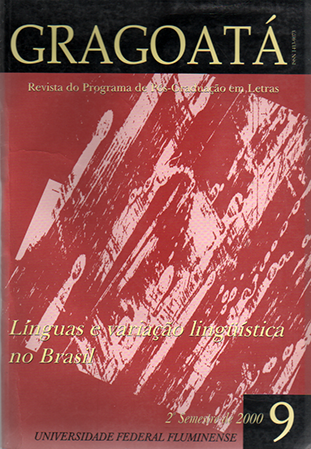Sobre ter e haver em construções existenciais: variação e mudança no português do Brasil
Keywords:
existential clauses, variation, changeAbstract
Anaylsis of the use of the verbs ter ('to have') and haver ('there to be') in existential sentences, trying to establish patterns of distribution and point to the structural and social factors that are responsible for its alternation of use. The results are based on qualítative and quantitative analyses in real time and in apparent time. The data are taken from written corpora, spanning the 13th to the 20th century, as well as from oral corpora, consisting of informal interviews with University graduates (standard dialect) from Rio de Janeiro, stratified for age and gender. The spoken samples were recorded in the 70's and in the 90's for a panel and trend study. Constraints are proposed in line with different hypotheses and we conclude that the frequency of use of ter-existential causes·increases gradually over time and its origin may be traced back to the 16th century. We also discuss the presence of a pronominal subject, generally você ('you') or a gente (people), in ter-existential clauses, that might be observed in a wider set of changes in Brazilian Portuguese.
Downloads
Downloads
Published
How to Cite
Issue
Section
License
Authors who publish in Gragoatá agree to the following terms:
The authors retain the rights and give the journal the right to the first publication, simultaneously subject to a Creative Commons license CC-BY-NC 4.0, which allows sharing by third parties with due mention to the author and the first publication by Gragoatá.
Authors may enter into additional and separate contractual arrangements for the non-exclusive distribution of the published version of the work (for example, posting it in an institutional repository or publishing it in a book), with recognition of its initial publication in Gragoatá.

Gragoatá is licensed under a Creative Commons - Attribution-NonCommercial 4.0 International.











